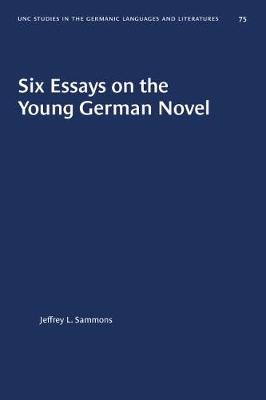University of North Carolina Studies in Germanic Languages and Literature
2 total works
In this study of the prose fiction of Das Junge Deutschland, the internal stresses and paradoxes of specific texts are examined and special attention is devoted to the unfulfilled strivings toward realism. Following an introduction to the young German problem, with special reference to Wienbarg, there are essays on Gutzkow, Mundt, Kuhne, and, as a contrast, the major novels of Immermann. The essays attempt to enhance the understanding of the post-Romantic crisis in German literature.
This study of German fiction about America in the 19th century concentrates in detail on three writers: Charles Sealsfield (Carl Postl, 1793-1864), an escaped Moravian monk who came to New Orleans in 1823 and during the 1830s and 1840s wrote the first major German novels about the United States; Friedrich Gerstacker (1816-1872), who, among his many experiences in America as a young man, lived as a backwoodsman in Arkansas and who later produced a large body of fiction, travel reportage and emigration advice; and Karl May (1842-1912), who, though he knew nothing about America beyond what he could read in books such as those by Sealsfield and Gerstacker, wrote famous adventure storties set in an imginary West and became the best-selling writer in the German language, whose sales by now have exceeded 100 million volumes. Sammons interweaves his discussion of these writers with excurses into the emergence of the German Western and anti-Americanism in German fiction.

